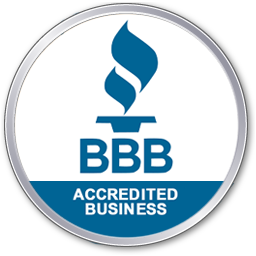1. Button up the property.
As much as we don’t like to admit it, looks do matter. Although a commercial property is different than a residential when it comes to appearance, you can still do your best to “stage” the property. No, not by buying vanilla scented candles. But it does mean making sure that the exterior appearance looks as good as possible. After all, it is the very first impression. That means getting the lawn taken care of, the exterior cleaned, windows cleaned (any broken or cracked windows replaced), and the roof inspected. The roof may make or break the sale. If there are damages to the roof, consider investing in repairs – it will increase the property value and make the sale easier.
2. Work with the appraiser, not against them.
When selling a commercial property and you’re preparing for an appraisal, it will save everyone time if the seller is honest upfront. If there are known issues about the property, it is best to be forthcoming and tell the inspector. In order to save time, provide the appraiser with additional documents like a property tax bill, a set of drawings of the property, income statements, or whatever they ask for, even if you don’t understand why they need all of the documents. This will help them to complete the job quicker and more thoroughly. Also, if you disagree with the appraisal and supply additional documentation later, you’ve wasted their time as well as your own. Keep in mind that appraisers are held to a strict code of ethics called the Uniform Standards of Professional Appraisal Practice. This requires them to provide an unbiased opinion during their appraisal. If they do not comply with these standards, it could potentially result in disciplinary action by the state, which could include having their certification revoked. So if an appraiser refuses something you ask for, it probably has to do with this code of ethics.
3. Consider getting a Phase I Environmental Site Assessment.
Being proactive about getting a Phase I environmental site assessment will show potential buyers that you are being proactive and transparent. A Phase I Environmental Site Assessment (ESA) is a report prepared for a real estate holding that identifies potential or existing environmental contamination liabilities. Alpha Environmental Services, Inc. retains certified Environmental Scientists, Geologists, and Civil Engineers to ensure your property is assessed correctly. A Phase I is highly recommended for any of the following:
- If it is an industrial property or another high risk type property, a Phase 1 ESA is advisable
- If it is an office building, apartment complex or other low-risk property type, limited environmental due diligence could be considered
- If it is vacant land that has never been developed, limited environmental due diligence could be considered
- Property location (remember you are not only looking at your property during the environmental assessment but also surrounding properties and how they might have an effect on your property)
- If the property is in an urban, highly developed area that has been so for a long time, a Phase 1 ESA is advisable
- If the property is in a mostly undeveloped area, limited environmental due diligence could be considered




